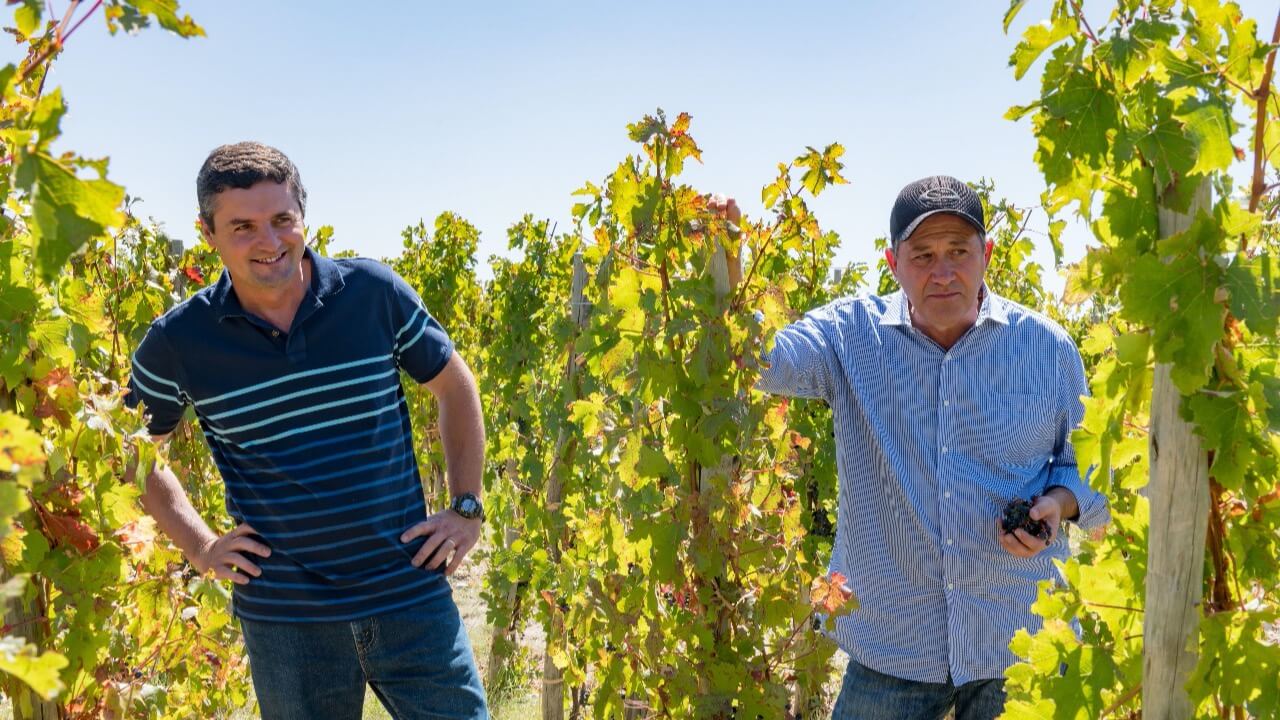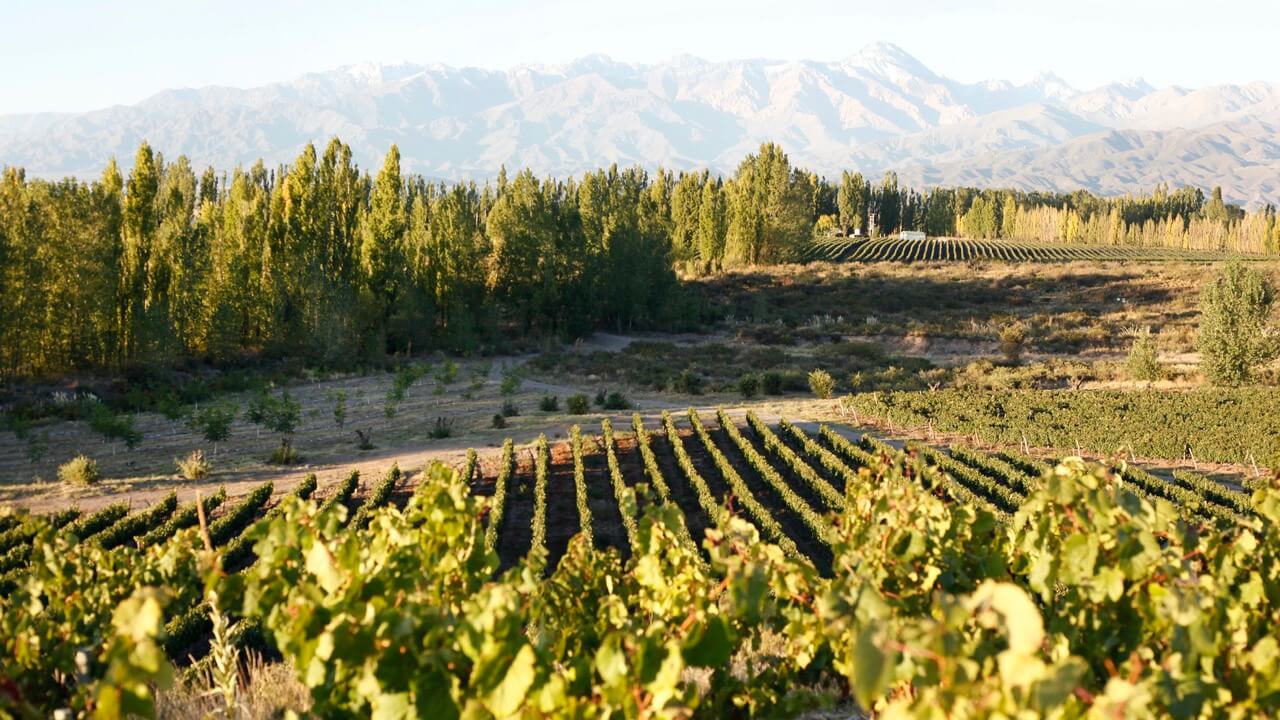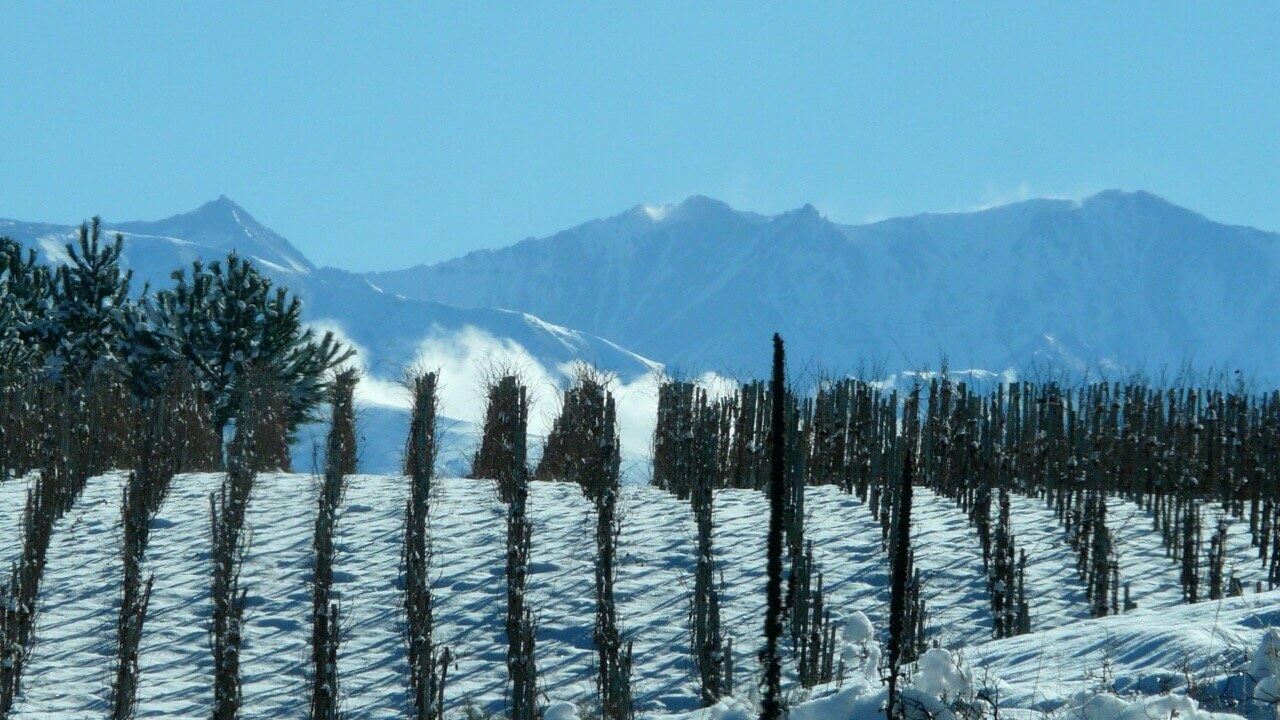
Harvest 2022 – A Cold vintage with a sudden end
The 2022 harvest was full of surprises: late frosts, frequent rains in February and an extraordinary early frost -which surprised everyone- that occurred in the
Having traveled widely throughout the national wine regions, David and Edy decided to give shape to wines that would spontaneously express the terroirs where they originate, avoiding any interference that might hide their purity.
We like wines of intense, pure and genuine aromas, crafted with timely harvested grapes, according to each vintage; wines of fresh, harmonious and balanced flavors that can be aged for a long time but at the same time enjoyed as soon as they are released. The great asset of PerSe are the vines that, in land plot selections -small lots-, individually give rise to their wines. Here, winemaking and ageing – artisanal-styled processes – acquire a secondary role, thus being consistent with our philosophy that less is more.
Our work begins in the vineyard, where a non-interventionist viticulture is practiced, and we microvinify small lots in barrels that have been used more than three times, as well as in small untreated concrete vats or in 300-liter open bins.
Our mission is to respect each plot of land as it is, not being obsessed with technology or with the overuse of resources, but rather capitalizing the technical knowledge acquired all our experience, and definitively following traditions.
David is one of the Argentine winemakers who knows the most about the different terroirs of the Uco Valley, from the South end in Altamira to the North end in Gualtallary. With great sensitivity and a meticulous look, he is attentive to how every detail in the vineyard can be genuinely expressed in our wines.

Understanding a place requires time, patience and observation, a work that Edy has been doing for almost three decades. He is the one who contributes to giving a transcendental meaning to a very special place, such as our Monastery vineyard.

David is one of the Argentine winemakers who knows the most about the different terroirs of the Uco Valley, from the South end in Altamira to the North end in Gualtallary. With great sensitivity and a meticulous look, he is attentive to how every detail in the vineyard can be genuinely expressed in our wines.

Understanding a place requires time, patience and observation, a work that Edy has been doing for almost three decades. He is the one who contributes to giving a transcendental meaning to a very special place, such as our Monastery vineyard.

Member of our V Generation of vignerons, Santi brings in the energy and vitality necessary to succeed us. He -from an early age- got involved in our vineyards to begin to understand its meaning.

Member of our V Generation of vignerons, Santi brings in the energy and vitality necessary to succeed us. He -from an early age- got involved in our vineyards to begin to understand its meaning.


The 2022 harvest was full of surprises: late frosts, frequent rains in February and an extraordinary early frost -which surprised everyone- that occurred in the

The weather during the summer season and the accelerated rhythm imposed by COVID -19 finally ended up in an intense harvest, but, by the time

ABOUT 2018 HARVEST: [Warm & dry]- another classic Mendoza´s vintage. Higher yields than 2017, headed to a more consistent quality, this is a fundamental fact to

The 2022 harvest was full of surprises: late frosts, frequent rains in February and an extraordinary early frost -which surprised everyone- that occurred in the

‘ANOTHER LONG AND COLD VINTAGE’ The 2021 vintage has been a particular harvest, with a bigger volume than the previous vintage, though lower than the

The weather during the summer season and the accelerated rhythm imposed by COVID -19 finally ended up in an intense harvest, but, by the time
Otra cosecha fría, la segunda de un ciclo que no aparentaba ser tan largo. Y fue otra cosecha para recordar, tanto por alguno de sus vinos como por las condiciones que la precedieron.
The grapes that give rise to PerSe Iubileus, La Craie and Uni del Bonnesant come from very small
-less than half an hectare- plots of land. They are special vineyards where we have found great finesse in the expression of their wines.
The vineyards are planted at different densities -from 2,300 to 7,000 plants per hectare- and in very dissimilar architectures designed in search of harmonizing the best for each soil-climate-plant combination.
The particular climatic conditions of Gualtallary led us to seek soils and training systems that could complement each other very well. As the altitude gets higher and the temperatures go down, the grapevine needs more restrictive soils -with larger proportion of stones and calcareous material-, more complex horizons, and free or lightly trained plants so as to reduce their vegetative expression, that is, smaller canopies and lower yields per plant.
It is for this reason that in these terroirs we prefer the planting of grapevines using gobelet or head vines, so as to have smaller, bush-type, well exposed plants.
The irrigation we encourage is only complementary and as we venture into higher altitudes, the need for irrigation decreases to very low levels, close to dry farming. We are on the road to developing dry farming in higher altitudes – which would be unprecedented in our viticulture. We believe that small, low-yield, naturally-balanced plants whose root exploration is limited by the type of soil, and which are planted in zones with above average winter snowfalls, give us a handicap that motivates us to take such risks.
In Gualtallary, the average day and night temperatures are between 3 and up to 6 degrees Celsius lower than in the city of Mendoza, due to the difference in altitude between both locations.




















